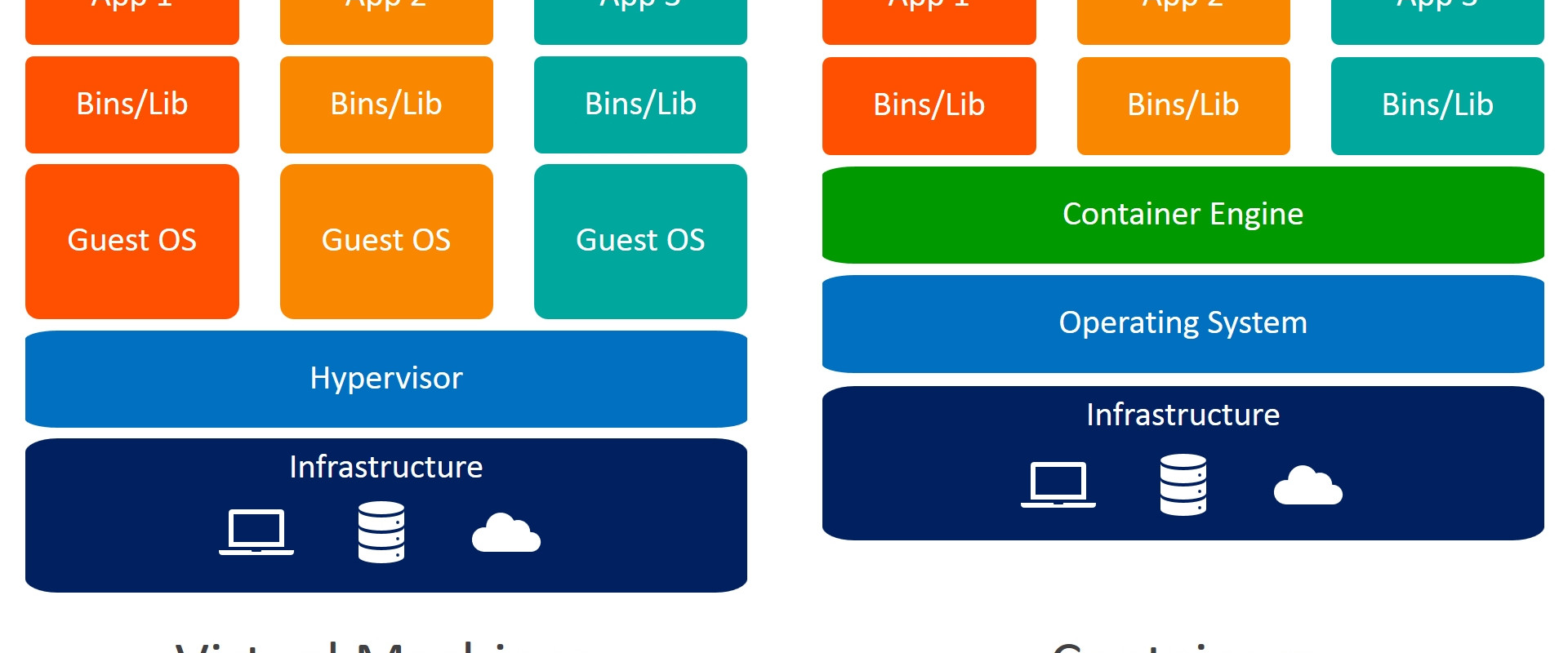Container vs. VM Security: Which Is Better?

Which virtualization technology will keep you more secure?
Containers and Virtual Machines (VMs) have a lot in common. They both make using IT infrastructure more efficient, but they do it in different ways. While both solutions can often solve the same problem, one of them is usually the better choice.
In this post, we're going to look at the security of containers and VMs. Is one more secure than the other?
Containers vs. VMs: What's the Difference?
Before we delve into security, we need to start with a quick overview of VMs and containers, and how they differ. These differences have a direct effect on their security profiles.
What’s a Virtual Machine?
A VM emulates a physical computer. It uses software to simulate hard drives, memory, CPUs, and graphics cards. So, you can run a virtual Linux system on a Windows laptop. You can even run a complete Windows system inside another. This is a useful technique for testing software on different versions of the same OS without more than one computer.
VMs run on hypervisors that manage access to the underlying hardware. Hypervisors are lightweight processes and can handle many virtual machines on a single computer.
What’s a Container?
Containers take a different approach to virtualization. Instead of running an entire emulated system, they package an application's dependencies, including the operating system, into a single package. You can run that package on any system that supports the container system. So, for example, you can run a Linux application in a container on a Mac.
Instead of a hypervisor, containers run on the underlying operating system, but they're still isolated. The operating system manages access to memory, disk, and OS resources.
Containers are lighter-weight than VMs, but that doesn't make them better. They solve a different problems. A VM emulates an entire computer. A container runs a single application.
Container vs. VM Security
Virtual machines have strong isolation between each other and their host. Since they don't share any resources, compromising one VM doesn't help you gain access to others. For example, if an attacker successfully breaches a VM and tries a denial-of-service (DOS) attack, the hypervisor limits the resource the compromised system can have, so the attack won't disable the host system or hurt the other VMs.
That said, a VM runs an entire operating system, so it has the same attack surface as an actual system. You need to secure your VMs the same way you do any other system. Usually, the first step in securing a VM is turning off or removing anything that isn't needed.
Containers only run a single application. So in theory, they have less attack surface than a VM. If a container has a vulnerability, it's likely to be in the application that's running in it, and that weakness would be there if it ran in a VM or on an actual system.
But containers share an underlying operating system. They're isolated from each other by a kernel, not a hypervisor. With Docker, they're isolated by a Linux kernel, and the Linux kernel has had vulnerabilities in the past. Docker has had vulnerabilities too, like the Doki malware that took advantage of Linux kernel flaws to target containers.
If an attacker compromises a container, they can still y have a better chance of affecting the other containers than they do VMs in a similar scenario. To reuse the example above, they can launch a DOS attack that may harm the underlying OS or the other containers.
Which One Is Better?
This is the wrong question, and if you're choosing VMs or containers based on how secure they are, you're ignoring the fact that they're not the same tool.
On balance, both virtualization technologies enjoy about the same level of security. They're very different tools, and the precautions you need to take depend on the tool and how you plan on using it.
We Provide consulting, implementation, and management services on DevOps, DevSecOps, Cloud, Automated Ops, Microservices, Infrastructure, and Security
Services offered by us: https://www.zippyops.com/services
Our Products: https://www.zippyops.com/products
Our Solutions: https://www.zippyops.com/solutions
For Demo, videos check out YouTube Playlist: https://www.youtube.com/watch?v=4FYvPooN_Tg&list=PLCJ3JpanNyCfXlHahZhYgJH9-rV6ouPro
If this seems interesting, please email us at [email protected] for a call.
Relevant blogs:
Securing Containers With Seccomp Filters
Cloud Computing and Cybersecurity: Risk Factor and Prevailing Trends
All the Questions You Were Afraid to Ask About SBOM
A Security Team’s Most Critical Skill? No-Code Automation
Recent Comments
No comments
Leave a Comment
We will be happy to hear what you think about this post